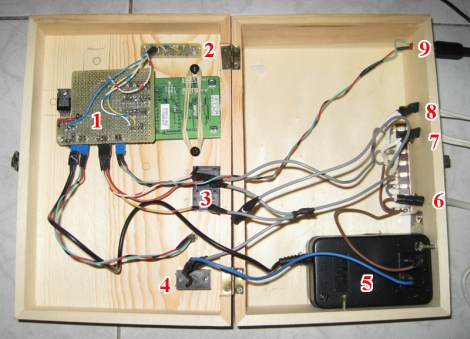
Anyone who owns a fish tank knows that a good amount of care is required to keep fish happy, healthy, and most of all – alive. [Vicente Jiménez] usually has no problem keeping up on the day to day maintenance such as feeding and switching the tank light, but he wanted to automate these processes for times when he can’t be home to take care of the fish (Translation).
His aquarium automation project is meant to cover three separate parts of the operation: light control, feeding, and pump regulation during feeding times. [Vincente] picked up an STM8L Discovery board to control his system, which enabled him to easily control the automation of all three.
He constructed the feeding mechanism using an old cassette player motor, which turns his food drum (an old film canister), twice a day at specified feeding times. Before the drum is turned to dispense food, the STM8L turns off the aquarium’s pump via a relay to ensure it doesn’t get clogged in the process. During the day he keeps the tank illuminated, but once night falls, the microcontroller shuts the lights off so the fish can get their rest.
There’s no video of the system in action, but [Vincente] has detailed its construction pretty thoroughly in his blog, so be sure to check it out if you are in need of something similar.





wow, i’m really amazed by the quality of the online translation. es->en seems to work very well.
Nice project btw.
Thank you.
I thought about writing my blog in english, but there are a lot of MCU blogs in english so I chosed to stay in spanish.
BTW automatic translation is nowadays quite good.
Very cool project! I have fish too, and something like this would be great for when I am on vacation. I really liked the food dispenser mechanism! Very clever! I may have to try and make one!
This was the idea. I had some discovery boards lying on the desk and I thought about building something to learn about them. I also needed something to feed the fishes while on vacation so I have fullfilled two objectives with one project.
The feeding mechanism is quite easy. Try yourself. I’m sure you can build one in no time.
I have just added a video of the feeder in operation. It can be seen at:
http://youtu.be/3uO9Ao7OvOw